 Grimm Curiosities by Sharon Lynn Fisher
Grimm Curiosities by Sharon Lynn Fisher Format: eARC
Source: supplied by publisher via NetGalley
Formats available: paperback, ebook, audiobook
Genres: Gothic, historical fantasy, historical fiction, historical romance, holiday fiction, holiday romance, paranormal
Pages: 299
Published by 47North on November 5, 2024
Purchasing Info: Author's Website, Publisher's Website, Amazon, Barnes & Noble, Bookshop.org, Better World Books
Goodreads
In Victorian England, a young woman inherits her father’s curiosity shop and all its ghostly secrets in a bewitching novel by the author of Salt & Broom.
It’s 1851 in old York. Lizzy Grimm struggles to save her late father’s charmingly creepy yet floundering antique shop, Grimm Curiosities. Then, during a particularly snowy December in this most haunted city in England, things turn…curiouser.
Lizzy meets Antony Carlisle, whose sister suffers from the same perplexing affliction as Lizzy’s mother—both stricken silent and unresponsive after speaking with ghosts. Working closely together to fathom what power has transformed their loved ones and why, Lizzy and Antony discover an important her father’s treasured set of rare books on ancient folktales, enchantments, and yuletide myths. Books that a persistent collector is awfully keen to purchase. Books Lizzy can’t bear to sell.
Every bewitching passage and illustration opens a doorway to something ancient and dangerously inviting. Keys to a mystery Lizzy and Antony are compelled to solve—even if doing so means unleashing one of this bright holiday’s darkest myths.
My Review:
To paraphrase a much more famous Victorian Christmas ghost story, Herbert Grimm was dead, to begin with.
And, while he has a chance to rectify his mistakes and failures from the afterlife, it’s a job that’s much too big for any number of spirits to handle in just one night.
It’s 1851 in cold, snowy, OLD York, and Lizzy Grimm has been doing her best to maintain the curiosity shop she inherited from her father – as well as somehow keep body and soul together for both herself and her mother.
The problem for Lizzy, the many, many problems for Lizzy, is that entirely too many of her father’s former customers and suppliers, both, are unwilling to deal with a woman, and her mother is ill and can’t help with the shop. Mrs. Grimm has disconnected completely from the world and can’t even help herself without supervision.
The rent is 10 weeks behind and getting more behind by the day, Lizzy can barely keep herself and her mother fed and prevent them from freezing to death in the winter cold. Christmas is less than two weeks away and, while business always improves BEFORE the holiday, it hasn’t improved enough to see them through the dearth of the bitter months after.
Which is the day when two men of considerably better means than Lizzy enter the shop and each present her with potential solutions to her woes. Collector Ambrose Stokes wants to purchase some mysterious books of myth and legend that her father set aside with a note not to sell. Antony Carlisle comes in seeking a present for his younger sister. A sister who is in the exact same walking somnambulance state as Lizzy’s mother.
It’s clear from the beginning that Stokes only wants to use her to get at something he covets badly and probably shouldn’t have. Meanwhile Carlisle is obviously searching for both help and friendship – even if he doesn’t recognize that the latter is only a small portion of what he seeks in Lizzy’s company.
Stokes can solve her immediate financial difficulties, while Carlisle is likely to only cause her heartbreak – even if that is far, far, from his intention.
Between them, they open up her world to the true legacy that her father intended to leave her. A legacy that holds the key to every question she’s ever asked, and every answer she never thought she’d need.
 Escape Rating B-: I picked this up because it looked like it was just the kind of horror-adjacent story that I generally enjoy. And because it was set in York, the setting of one of my favorite historical mystery series. (If you’re curious about the York of four centuries before this story, check out the Owen Archer series of historical mysteries, beginning with The Apothecary Rose. Because if there is one thing that Lizzy Grimm is right about, it’s that York is absolutely rife with stories just waiting to be told!)
Escape Rating B-: I picked this up because it looked like it was just the kind of horror-adjacent story that I generally enjoy. And because it was set in York, the setting of one of my favorite historical mystery series. (If you’re curious about the York of four centuries before this story, check out the Owen Archer series of historical mysteries, beginning with The Apothecary Rose. Because if there is one thing that Lizzy Grimm is right about, it’s that York is absolutely rife with stories just waiting to be told!)
So I was expecting a bit more Halloween and got a whole lot of the Victorian Christmas season instead – mixed with a trip to Narnia and more than a soupçon of historical romance. Even though even a soupçon of actual soup is something that Lizzy has been forced to worry about a LOT.
Also, and I know this is a ‘me’ thing and may not be a ‘you’ thing, Lizzy’s straddle of the line between having agency as the protagonist while being a woman of her time was even more uncomfortable for me than it was for her – and it was plenty uncomfortable for her. It just wasn’t what I was in the mood for and your reading mileage may definitely vary.
What was absolutely fascinating was the way that the supernatural and paranormal crept into the story on ghostly feet, that the gift she thought had passed her by was doing its damndest to warn her that she was heading for her own damnation if she didn’t figure out what was going on on both sides of the actual, honest-to-supernatural, wardrobe before it was too late.
From the standpoint of this reader, it felt like this story had too many irons in its fire. Each of the individual parts had the potential to be a whole, fascinating story, from the ghostly visitations to the world inside the cabinet, to the myths and legends coming to life to the mystery of just who the collector was and what he was up to and last but not least to the class-barrier hopping romance between Carlisle and Lizzy with Carlisle’s overbearing father serving as second-villain.
There were a LOT of fascinating story parts trying to weave themselves into a whole cloth – but they didn’t quite manage it and/or there wasn’t enough book for them to manage in. It had the bones of a good story – but either not quite enough bones or not enough flesh for the story-creature it was meant to be.

 Graveyard Shift by
Graveyard Shift by  Crypt of the Moon Spider (Lunar Gothic Trilogy, #1) by
Crypt of the Moon Spider (Lunar Gothic Trilogy, #1) by  The SFnal aspects of the story were enough to carry me over – or perhaps through – the horror aspects of the thing, except for the image of Veronica left in my mind at the end. For anyone who has ever played
The SFnal aspects of the story were enough to carry me over – or perhaps through – the horror aspects of the thing, except for the image of Veronica left in my mind at the end. For anyone who has ever played  Lady Macbeth by
Lady Macbeth by 
 (If you’re wondering – as I was – it reminds me of
(If you’re wondering – as I was – it reminds me of  Court of Wanderers (Silver Under Nightfall, #2) by
Court of Wanderers (Silver Under Nightfall, #2) by 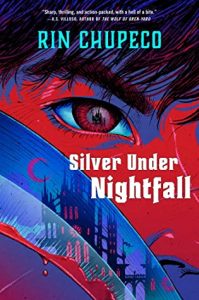 Escape Rating A++: The SQUEE is strong with this review. Let’s get into at least a bit of the why of that fact.
Escape Rating A++: The SQUEE is strong with this review. Let’s get into at least a bit of the why of that fact.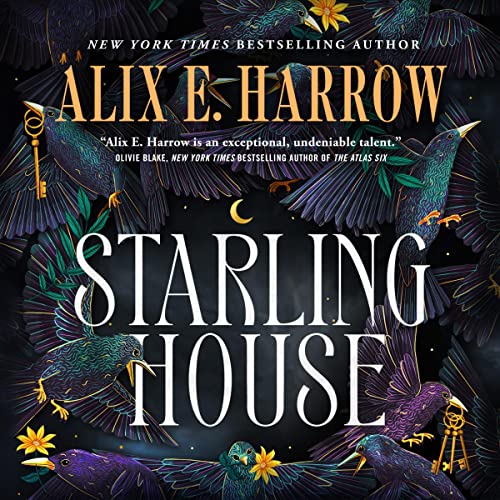 Starling House by
Starling House by 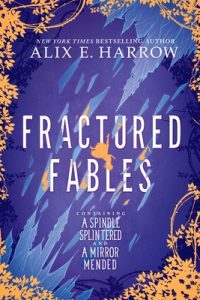 I took this journey in audio, with Natalie Naudus as the most excellent narrator. As a narrator, she seems to specialize in heroines who think that everything is all their fault and that they have to do it all alone, and her voice made me think of her other characters, Emiko Soong in
I took this journey in audio, with Natalie Naudus as the most excellent narrator. As a narrator, she seems to specialize in heroines who think that everything is all their fault and that they have to do it all alone, and her voice made me think of her other characters, Emiko Soong in 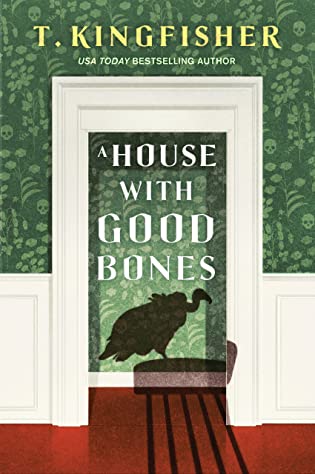 A House with Good Bones by
A House with Good Bones by 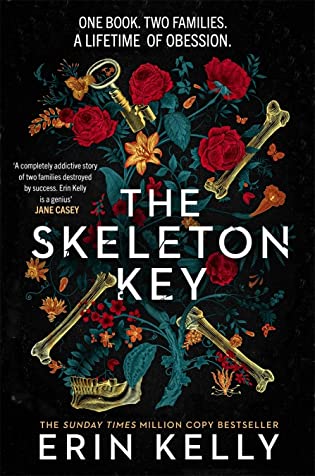 The Skeleton Key by
The Skeleton Key by 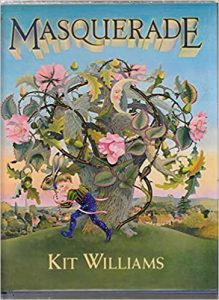 Two things to start. First, the concept of The Golden Bones may sound vaguely familiar – and that’s intentional on the part of the author and acknowledged at the beginning. There was a real, worldwide craze for armchair treasure hunt books in the 1980s, kicked off by the publication of the massively illustrated puzzle/story book
Two things to start. First, the concept of The Golden Bones may sound vaguely familiar – and that’s intentional on the part of the author and acknowledged at the beginning. There was a real, worldwide craze for armchair treasure hunt books in the 1980s, kicked off by the publication of the massively illustrated puzzle/story book 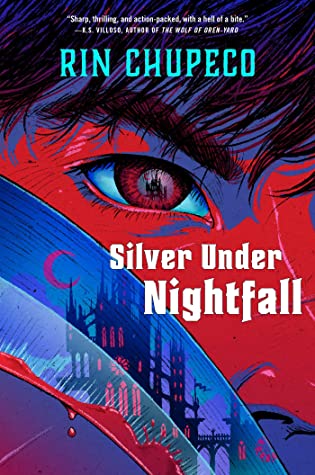 Silver Under Nightfall by
Silver Under Nightfall by 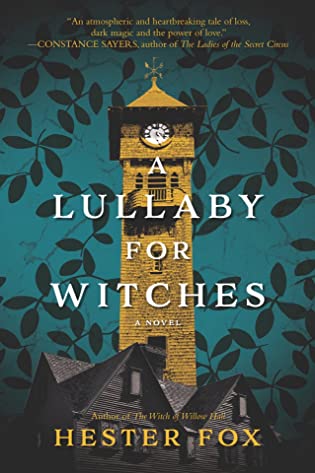 A Lullaby for Witches by
A Lullaby for Witches by 